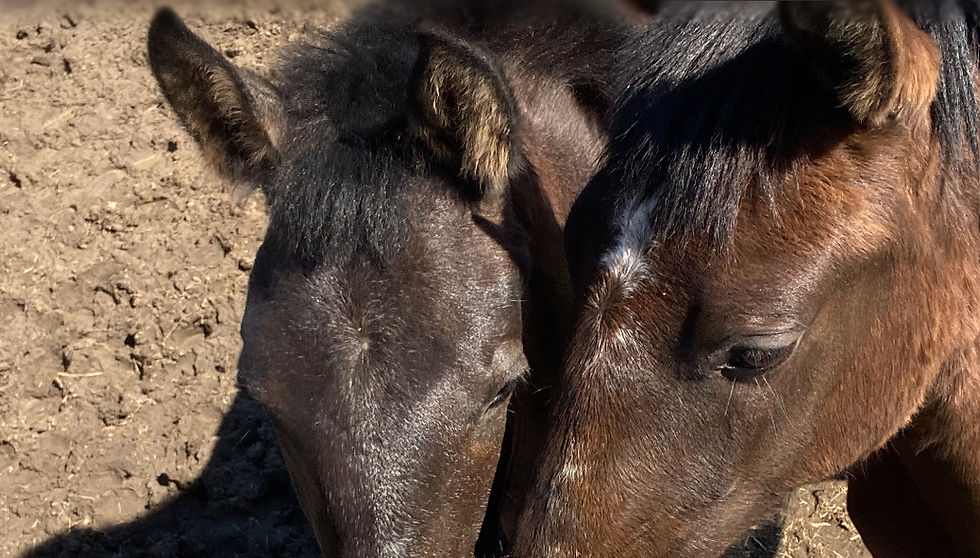Breeding
- Nina Husmann
- Sep 12, 2025
- 2 min read

Yay! I am making important new observations with my fillies. First, I want to share how happy I am that a friend of mine is letting me raise her filly together with mine so that she has company. Growing up in social groups of the same age is very important for horses, just as it is for humans. The interesting thing is not necessarily how good it is. As horse lovers, we should already know that. But what is interesting is where deficiencies arise if this is not done. The behavior of an adult horse that has grown up in isolation can deviate drastically from “normal” behavior. We have to define what isolation means. It is not enough to have visual contact with other horses, it is not enough to sniff other horses over the fence. It is not enough. Social behavior is learned through play, which means that after weaning from the mother mare, a pasture for foals should be found where the foal can grow up with friends. Behavioral abnormalities in adult horses that were recommended without full contact at an advanced age can cause problems in subsequent handling with people or when integrating into new herds of horses. The main reason is an understandable latent insecurity, which is clearly visible and observable. But it also changes proprioception, or body awareness. Rude behavior can develop.
At the moment, the foals I have at home bump into each other while playing and learn from this when it is best to be careful with each other's boundaries if they don't want it to be unpleasant. They learn everything through play. They are still relatively light in weight and, of course, have no shoes on their hooves. They play, bump into each other, run, reassure each other, and inform each other of possible dangers. :-))



Comments